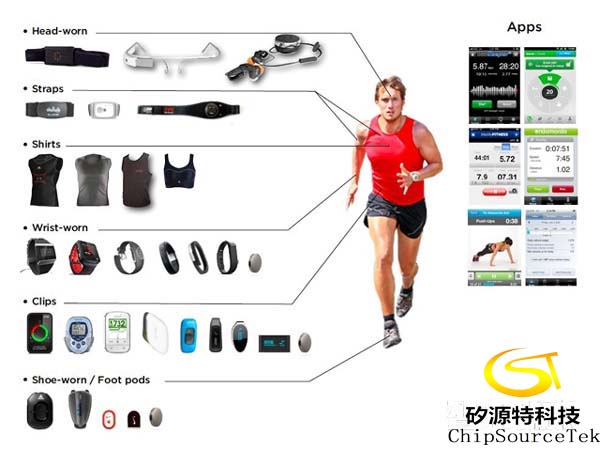Application Solution
Detailed classification of smart wearable products

Intelligent wearable devices refer to wearable technology that integrates daily wear and reminders, navigation, verification, detection, interaction, healthcare, and other functions into one or more wearable devices through intelligent configuration. They can be worn directly on the body or integrated into the user's clothing or accessories. PD belongs to the electronics industry, and some PDs are used to manage human health data. The application scenario is hospitals, and this type of PD is more accurately classified as the medical device industry.
At present, there are many types of wearable products in China, mainly including smart watches, smart bracelets, smart headphones, etc. Among them, smart watches are popular digital products. Smart watches can have built-in smart systems and be connected to smartphone systems to achieve multifunctionality. They can synchronize phone calls, text messages, emails, photos, music and other information in the phone. Moreover, healthcare, information and entertainment, and sports and fitness have gradually become hot topics of concern for people.
Smart watch: A smart watch that has a smartphone and similar operating system, information processing functions, and meets the basic technical requirements of a watch. According to the definition and classification of the wearable device industry, it is pointed out that smart meters should not only indicate time, but also have functions such as reminders, navigation, verification, monitoring, interaction, and health data management, displayed in the form of pointers, numbers, images, etc. And synchronize human health data with mobile phones, tablets, and iPod touch, using data to guide healthy living.
Smart wristband: Real time records of daily activities such as exercise, sleep, partial time, and diet, and synchronizes this information with mobile phones, tablets, and iPod touch to guide healthy living through data. As a technology product that has attracted much attention from users, the powerful functions of smart bracelets are quietly penetrating and changing people's lives.
Intelligent earphones: smart wearable devices with voice, intelligent interaction, motion monitoring, heart rate detection, and social functions.
Among them, intelligent wearable medical devices positioned for human health data management are becoming increasingly popular among numerous wearable devices. Intelligent wearable medical devices can monitor users' health data in real time, allowing them to understand their physical health status in real-time, saving them the cost and time of going to the hospital for physical examinations, and bringing great convenience to users.
Intelligent wearable medical devices not only provide convenience, but also reduce patients' treatment costs. By using wearable medical devices, relevant medical institutions can more conveniently integrate medical resources and provide services to users. Especially with the timeliness of wearable medical devices, medical institutions can provide treatment or remote consultations to patients at any time through data feedback, reducing treatment costs. Hospitals can collect and process users' health data on a large scale during the processing, providing important reference and support for future medical big data analysis. Medical big data is an important basis for analysis and decision-making in the medical industry, and the application of wearable devices provides a huge and reliable data source for medical big data, which will support the further development of personalized medicine. The main research object of this report is intelligent wearable devices.
Disclaimer: This article is reproduced from other platforms and does not represent the views or positions of this website. If there is any infringement or objection, please contact us to delete it. thank you!
ChipSourceTek



